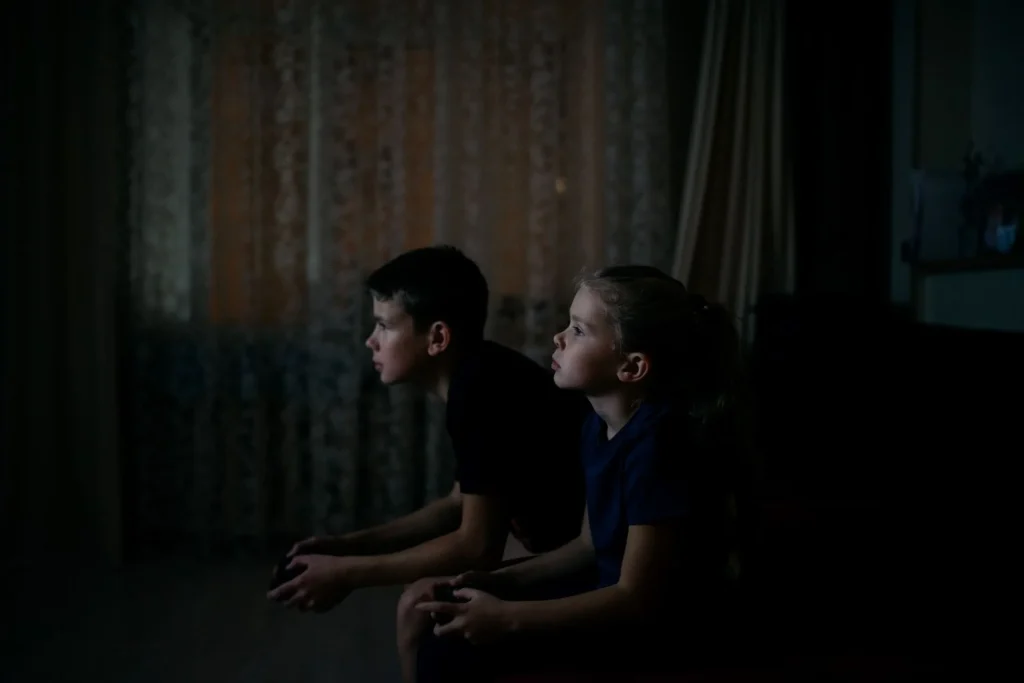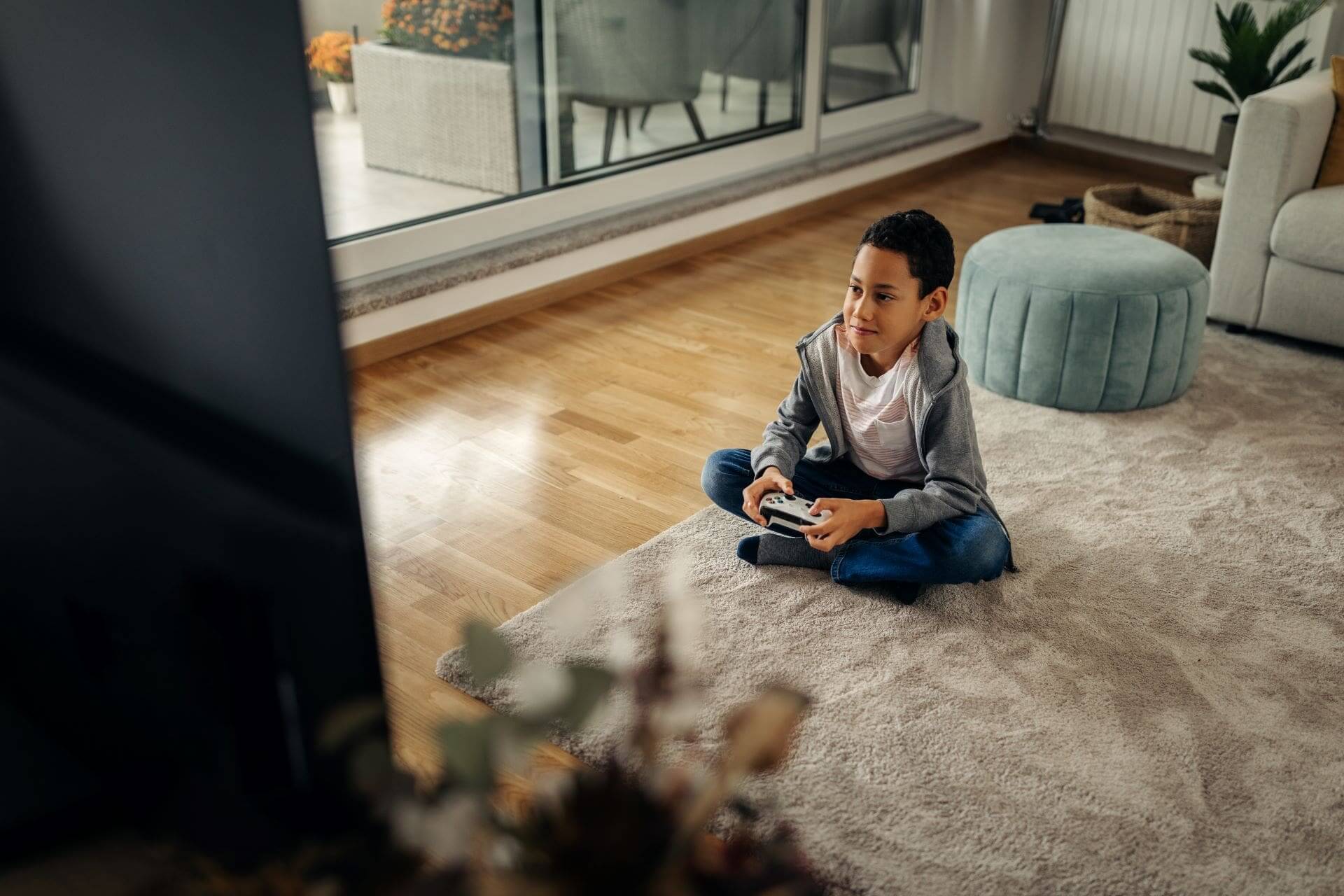In today’s fast-paced digital age, it’s no surprise that video games have become a popular pastime for people of all ages. While some might argue that playing video games can be a time-consuming and possibly isolating hobby, there is increasing evidence that, when played in moderation, they have many positive effects.
Parents may have mixed emotions when thinking about getting their child a gaming console, but with a proper approach, it can be a useful addition to their leisure time, especially when they finally have full access to their gaming room in your newly purchased house and lot for sale in San Pedro Laguna.
In this article, we’ll go over the world of gaming, its benefits, and ways that parents may encourage children to balance gaming with their own responsibilities.
The Appeal of Video Games
The gaming industry provides countless adventures and different kinds of amusement, whether you’re interested in exploring faraway galaxies, creating digital empires, or engaging in epic combat.
If you’re a parent, and you’re considering gifting your child a gaming console, you’re not alone. Many parents are faced with this choice and question how to combine their child’s gaming time with other vital aspects of their child’s life.
However, before we discuss parenting from this angle, let’s first acknowledge why video games are currently so tempting to kids and teenagers. Immersive experiences provided by video games encourage teamwork, creativity, and problem-solving abilities. They give gamers the chance to immerse themselves in fantasy settings, test their ability to think critically with puzzles and communicate with other players. The appeal of gaming resides in its capacity to foster relaxation, social connection, and feelings of accomplishment—all within the boundaries of a screen.

What Are the Effects of Video Games on Children?
According to some studies, playing video games can enhance learning. It is undeniable that playing video games in your newly bought house and lot for sale in San Pedro Laguna can benefit the brain in a variety of ways, including better information processing, greater perception of visuals, and greater capacity to move between tasks. Additionally, playing video games can enhance our capacity for logic and problem-solving.
Nevertheless, spending too much time attached to a screen— may it be a TV, computer, phone, etc., while playing video games can also lead to obesity and weak or impaired vision, among other health issues. A child’s prolonged use of video games may also result in aggressive behavior, aggressive thinking, and other psychological issues. Playing too many video games can result in poor social skills, time spent away from family, work, and other interests, lower grades, less reading, and less exercise.
How Do Video Games Affect a Child’s Brain?
The brains of children can undergo “significant” alterations as a result of bad video game habits, according to Nicki Seay. Video games neglect and harm other parts of the brain while stimulating only certain parts of it, particularly those that control vision and movement. Over time, the brain’s behavior, emotion, and learning-related regions might become undeveloped, which has an impact on all levels of linked functions.
Additionally, according to Amy Paturel, a 1998 study that appeared in the scientific journal Nature demonstrated that playing video games causes dopamine, a feel-good neurotransmitter, to be released. When playing video games, dopamine levels were comparable to those reported after intravenous injections of the stimulants amphetamine or methylphenidate.
The concept of game addiction (whether it occurs online or not) is challenging to describe despite accumulating research regarding the cognitive, behavioral, and neurochemical effects of gaming. It is a unique psychiatric condition, according to some researchers, while others think it might be a symptom of another psychiatric disorder.
Nevertheless, experts believe that gaming can be addictive. The desire for an instant reward, a quick pace, and unpredictability is a fundamental aspect of human brain wiring.
Strategies for Managing Your Child’s Gaming Habits
You have every right to be concerned as a parent about how much time your child spends playing video games. Gaming too much might result in medical conditions like eye strain, sleep difficulties, and sedentary habits. Additionally, it could cause problems with other obligations like schoolwork. Yet completely forbidding it might not be the best course of action.
Moderation is the key
Video gaming should be enjoyed in moderation, just like any other pastime. You might not be aware of how much time your child spends playing video games if their gaming console is in their room in your recently purchased house and lot for sale in San Pedro Laguna. Hence, it is preferable to encourage your child to have a balanced schedule that allows for time for homework, exercise, and social engagements.
Help children comprehend the value of time management and the negative effects of skipping out on obligations. Set screen time restrictions together, making sure they have plenty of time for other learning activities.
Know what they’re playing
Ensure that you are aware of and comfortable with the games your child is playing. You can choose to limit access to violent or inappropriate video games even though it’s uncertain whether playing them makes children violent. After all, you have both the right and the obligation as a parent.
If you are unsure, you can directly ask your child or look at web browsers. Find out the games he likes to play. In addition to establishing restrictions for playing hours, you should also specify the kinds of games that are permitted. You can and should avoid buying and playing video games featuring graphic sexual or violent violence.
Setting boundaries and rewards
For appropriate gaming habits, it’s essential to establish clear limits. A gaming schedule that specifies the hours when playing is permitted can be made. By doing this, you can be sure that your child knows when it’s okay to play and when they should be concentrating on other things.
You may also consider using gaming as a reward system as well. Encourage your kid to finish up any remaining assignments, household chores, or other obligations before entering the gaming area. You can develop a feeling of responsibility and discipline in children by tying their gaming time to their successes. Finding the right balance between enjoyment and responsibility is the key.
Bottom Line
Giving your child a gaming system may be a considerate act if you do it with responsibility in mind. When played responsibly and under parental supervision, video games have an array of advantages. You may assist your child in striking a good balance between gaming and other duties by establishing clear boundaries, using gaming as a reward system, and encouraging educational and social gaming experiences. Make sure that your child continues to experience the benefits of gaming by embracing it as a tool for personal development, education, and bonding.
Read more: The Proper Way To Regularize Online Gaming for Your Kids


